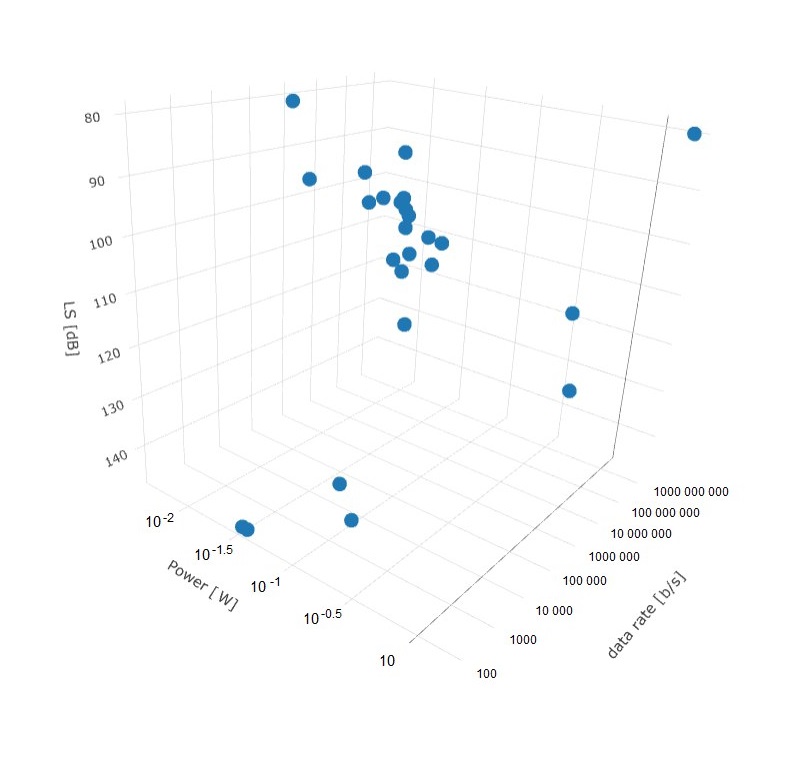MSc thesis project proposal
Investigation of the energy efficiency paradigms of radio transceivers for Wireless Sensor Networks
This graduate project will be part of a fascinating research effort in the field of Wireless Sensor Networks (WSN). The research topic involves many challenges, starting from top-level application definition and topology planning, and going down to the detailed protocol design and component selections. The main challenges of WSN, compared with the conventional wireless networks, are the increased number of sensor nodes and the scarcity of resources, specifically local power supply.
Radio transceivers are a key building block in wireless sensor nodes. The available on the market and introduced by the research community new transceivers offer significant variety of: data rates, communication ranges, modulation techniques, while consuming different amounts of power. For example, transceivers can be very power efficient and provide slow data rate, or, alternatively, can support high data rates and be more power hungry. The question is: how to choose the best solution for each particular WSN application?
During the execution of the project, the graduate student will obtain knowledge in the fields: wireless sensor network protocols, wireless transceivers, data processing, and modeling. Also, the student can advances his/her research abilities and analytical thinking. The project will be executed at TU Delft. However, due to its application nature, the master student will be eligible for receiving an internship from a high-tech Dutch company.
Assignment
The goal of this research work is to create a mechanism for comparing different transceivers based on their key characteristics, and in this way to help designers and researchers making the best choices, as well as to try to predict the future progress in the field.
This study involves literature reviewing, programming, data processing, and modeling.
Contact
prof.dr. Stoyan Nihtianov
Electronic Instrumentation Group
Department of Microelectronics
Last modified: 2020-02-07
